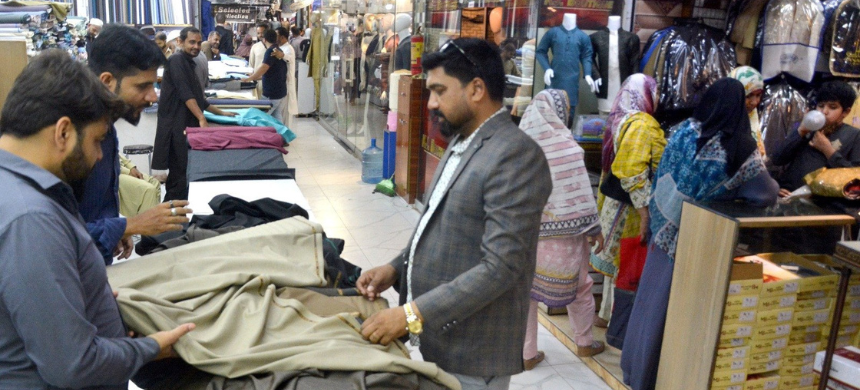Karachi Traders Disappointed by Low Eid Sales Amid Economic Struggles
The business community in Karachi has expressed disappointment over this year’s Eid sales, marking the third consecutive year of sluggish sales and financial setbacks.
Sales Decline Due to Inflation
The All Karachi Traders’ Alliance reported that shopkeepers were unable to sell nearly 60% of their stock, resulting in a significant loss. Ateeq Mir, president of the alliance, shared that 40,000 shopkeepers across 200 markets had invested around Rs 40 billion in stock ahead of Eid ul Fitr. However, total sales reached only Rs 15 billion, leaving Rs 25 billion worth of merchandise unsold.
Read More: Inflation Causes Over 70% Drop In Eid Shopping In Pakistan
Mir attributed the decline in sales to high inflation, a drop in purchasing power, and worsening law and order conditions, all of which discouraged consumers from spending during the festive period. Compared to last year, sales dropped by 25%, exacerbating the financial challenges faced by traders.
Challenges in Repaying Borrowed Inventory
Many shopkeepers had purchased inventory on borrowed capital, expecting a surge in sales during Eid. With a large portion of stock unsold, they now face difficulties repaying loans. Mir expressed concern that inflation and limited incomes had stripped many families of their ability to celebrate Eid, forcing them to cut back on spending.
PM to Meet Business Leaders
In a bid to address the challenges faced by the business community, Prime Minister Shehbaz Sharif is scheduled to meet with top business leaders on Thursday. The meeting will focus on recent reductions in electricity prices and ongoing power sector reforms. Key government officials and business figures are expected to attend.
Sources confirmed that the International Monetary Fund (IMF) had approved a Re1 per unit reduction in electricity tariffs. The government had earlier requested NEPRA (National Electric Power Regulatory Authority) to lower electricity rates, with further discussions ongoing regarding potential significant reductions to alleviate financial pressures on businesses and consumers.











